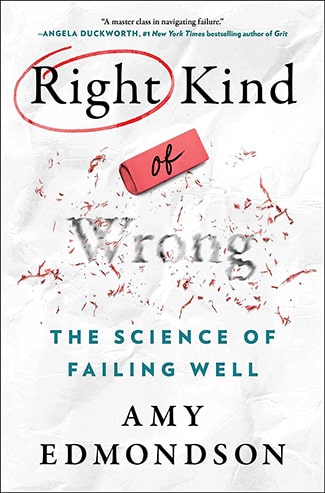People often think of failure in one of two ways: as something that hinders the pursuit of success, or as something that's a necessity in obtaining it — as in the Silicon Valley mantra that recommends failing fast and often. There's truth to both ideas, but neither offers a complete picture of failure. That's because there isn't just one kind of failure, but three. Here to unpack what those three types are is Amy Edmondson, a professor of leadership at the Harvard Business School and the author of The Right Kind of Wrong: The Science of Failing Well. Today on the show, Amy shares which type of failure is most productive, which types are less fruitful, and how to best use the former, prevent the latter, and learn from failure of every kind. We also talk about how to organize potential failures into a matrix that will help you best approach them. Along the way, we dig into examples, both big and small, of how individuals, organizations, and families can put failure to work for them.
People often think of failure in one of two ways: as something that hinders the pursuit of success, or as something that's a necessity in obtaining it — as in the Silicon Valley mantra that recommends failing fast and often.
There's truth to both ideas, but neither offers a complete picture of failure. That's because there isn't just one kind of failure, but three.
Here to unpack what those three types are is Amy Edmondson, a professor of leadership at the Harvard Business School and the author of The Right Kind of Wrong: The Science of Failing Well. Today on the show, Amy shares which type of failure is most productive, which types are less fruitful, and how to best use the former, prevent the latter, and learn from failure of every kind. We also talk about how to organize potential failures into a matrix that will help you best approach them. Along the way, we dig into examples, both big and small, of how individuals, organizations, and families can put failure to work for them.
